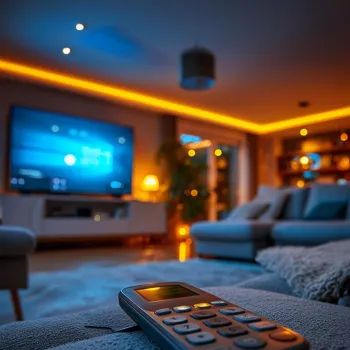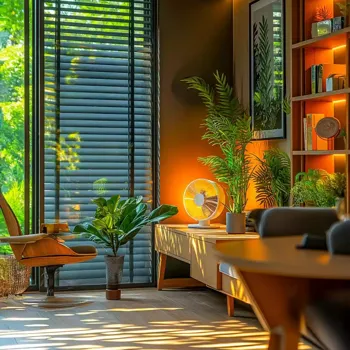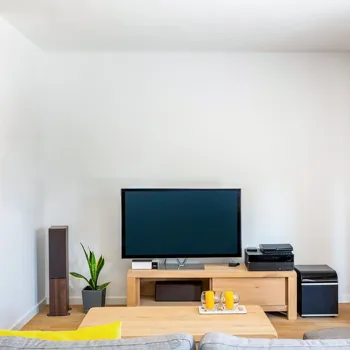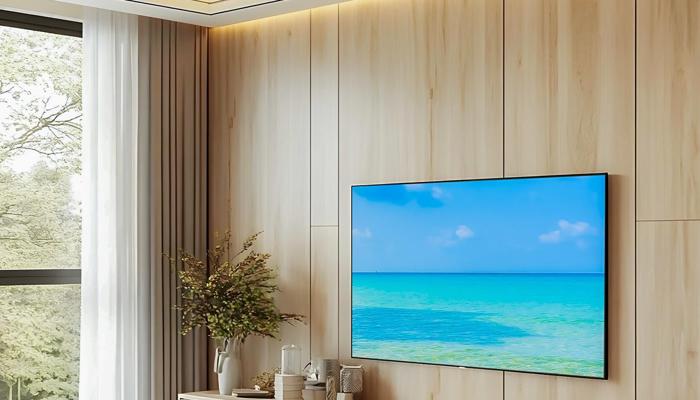Unlock the Future: Embracing Smart Home Technology in India. Discover the revolution reshaping living spaces. Read more!
In Bharat, the concept of 'home' has always been deeply entwined with comfort, security,
and a sense of belonging. Now, imagine adding a dash of intelligent technology to this mix.

That's precisely what's happening with the rise of smart homes, transforming our living spaces into intuitive, efficient, and connected havens. These aren't just futuristic fantasies anymore; they're becoming increasingly accessible and desirable for Indian families of all shapes and sizes.
Think of controlling your lights with a voice command, automatically adjusting air conditioning based on the weather outside, or receiving real-time security alerts on your smartphone.
This is the reality that smart home technology offers, promising to make our lives easier, safer, and more convenient.
The adoption of smart home devices is picking up speed across the country, fueled by increasing internet penetration, affordability of smart devices, and a growing awareness of the benefits they offer.
The IoT drives smart home tech for seamless living experiences
The driving force behind this revolution is the Internet of Things (IoT), a network of interconnected devices that communicate and exchange data with each other. This allows for seamless automation and control of various aspects of your home.
From smart lighting and thermostats to security systems and entertainment setups, IoT-enabled devices are working together to create a truly integrated living experience.
For example, imagine waking up to the aroma of freshly brewed coffee as your smart coffee maker kicks in automatically, triggered by your smart alarm. Or picture coming home to a perfectly lit and temperature-controlled environment, all managed remotely through your smartphone.
The possibilities are virtually endless, and the technology is constantly evolving with new and innovative solutions emerging every day. So, what makes a home "smart" in the Indian context?
It's not just about fancy gadgets; it's about integrating technology to address specific needs and challenges faced by Indian households.
Smart home security systems offer enhanced safety and peace of mind in India
One of the biggest advantages of smart homes is the enhanced security they offer. Smart security systems, equipped with features like motion detectors, smart locks, and security cameras, provide round-the-clock monitoring of your home.
You can receive real-time alerts on your smartphone if there's any suspicious activity, allowing you to take immediate action. Many systems even offer remote control of your doors and windows, so you can lock up even if you're miles away.
This is particularly beneficial for families who travel frequently or those living in areas with higher crime rates. Furthermore, smart home systems can be integrated with local emergency services, ensuring a quick response in case of a break-in or any other emergency.
Peace of mind is a priceless commodity, and smart home security systems provide just that, offering a sense of safety and security that traditional security measures simply cannot match. This is one prime aspect that is propelling acceptance in India.
Energy-efficient smart homes benefit India's sustainability and economy
Energy efficiency is another significant benefit of smart homes, particularly relevant in a country like India where energy conservation is becoming increasingly important.

Smart thermostats can learn your heating and cooling habits and automatically adjust the temperature to optimize energy consumption. Smart lighting systems can dim or turn off lights in unoccupied rooms, saving electricity and reducing your carbon footprint.
You can also monitor your energy usage in real-time through your smartphone, identifying areas where you can further reduce your consumption. These features not only help you save money on your electricity bills but also contribute to a more sustainable lifestyle.
In a country where many areas face frequent power outages, smart home systems can also be integrated with backup power sources, ensuring that your essential appliances continue to function even during a power cut.
Therefore, the environmental and economic advantages are quite attractive for people in India.
Smart home entertainment offers seamless experience with smart TVs, speakers, and more
The entertainment aspect of smart homes is also gaining popularity. Smart TVs, connected speakers, and streaming devices offer a seamless and immersive entertainment experience.

You can stream your favorite movies and shows in high definition, listen to music throughout your home with multi-room audio systems, and control everything with voice commands or a smartphone app.
Imagine hosting a party and effortlessly controlling the music, lighting, and temperature from your phone, creating the perfect ambiance for your guests.
Smart home entertainment systems can also be customized to suit your individual preferences, allowing you to create personalized playlists, set up automated routines, and even control your TV with voice commands.
For families, a smart entertainment system can provide endless hours of fun and bonding. Also, don't forget that gaming in India is on the rise and with new home technology coming it just adds more excitement.
Challenges in adopting smart homes in India
However, the adoption of smart homes in India also comes with its own set of challenges. Cost remains a significant barrier for many, as smart home devices can be relatively expensive.
Data privacy and security concerns are also a major consideration, as these devices collect and transmit personal data. It's essential to choose reputable brands with strong security protocols and to take steps to protect your privacy by regularly updating your software and using strong passwords.
Furthermore, the lack of standardization in the smart home industry can make it difficult to ensure interoperability between different devices. It's important to research and choose devices that are compatible with each other to avoid compatibility issues.
Despite these challenges, the future of smart homes in India looks promising, with the market expected to grow significantly in the coming years. As technology continues to evolve and prices become more affordable, smart homes will become increasingly accessible and integrated into our lives.













![[WATCH] T20 World Cup 2026: Gautam Gambhir hosts dinner for Team India players ahead of Namibia clash](https://g-mob.glance-cdn.com/public/fc/image/7gXS1xdhs5Q0.webp)


